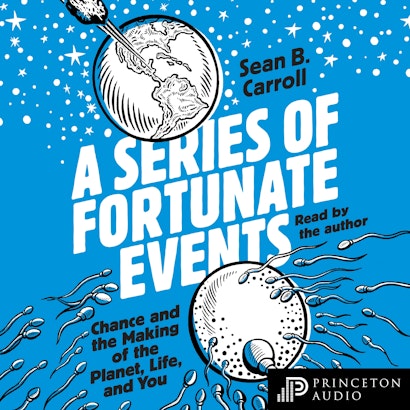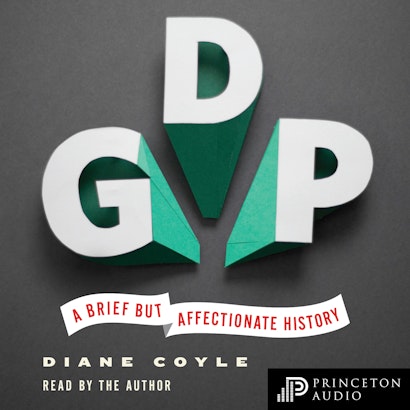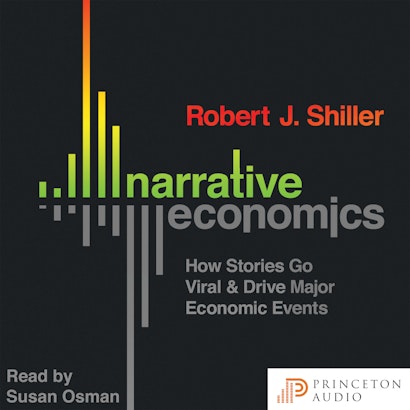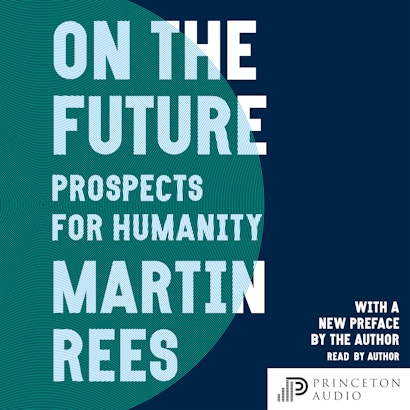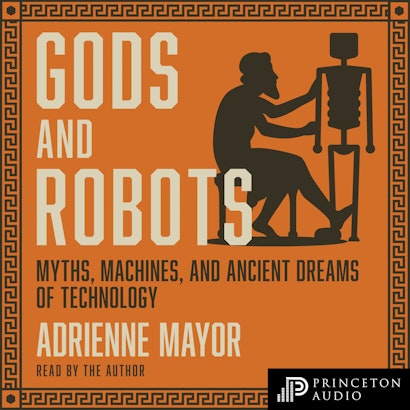We are proud to bring a selection of our books to you as audiobooks through our publishing program, Princeton Audio. Our commitment to quality is central to our audio publishing, and we deliver the finest narration and sound editing as well as a broad distribution network that allows us to reach scholars, students, and engaged listeners everywhere. We invite you to browse our featured titles below, visit our audiobooks page where you can learn more about our audio publishing program and read about featured narrators, or check out our full list of Princeton Audio titles.
Why is the world the way it is? How did we get here? Does everything happen for a reason or are some things left to chance? Philosophers and theologians have pondered these questions for millennia, but startling scientific discoveries over the past half century are revealing that we live in a world driven by chance. A Series of Fortunate Events tells the story of the awesome power of chance and how it is the surprising source of all the beauty and diversity in the living world.
Why did the size of the U.S. economy increase by 3 percent on one day in mid-2013—or Ghana’s balloon by 60 percent overnight in 2010? Why did the U.K. financial industry show its fastest expansion ever at the end of 2008—just as the world’s financial system went into meltdown? And why was Greece’s chief statistician charged with treason in 2013 for apparently doing nothing more than trying to accurately report the size of his country’s economy? The answers to all these questions lie in the way we define and measure national economies around the world: Gross Domestic Product. This entertaining and informative book tells the story of GDP, making sense of a statistic that appears constantly in the news, business, and politics, and that seems to rule our lives—but that hardly anyone actually understands.
For two hundred years, conservatism has defied its reputation as a backward-looking creed by confronting and adapting to liberal modernity. By doing so, the Right has won long periods of power and effectively become the dominant tradition in politics. Yet, despite their success, conservatives have continued to fight with each other about how far to compromise with liberalism and democracy—or which values to defend and how. In Conservatism, Edmund Fawcett provides a gripping account of this conflicted history, clarifies key ideas, and illuminates quarrels within the Right today.
Ignorance, whether passive or active, conscious or unconscious, has always been a part of the human condition, Renata Salecl argues. What has changed in our post-truth, postindustrial world is that we often feel overwhelmed by the constant flood of information and misinformation. It sometimes seems impossible to differentiate between truth and falsehood and, as a result, there has been a backlash against the idea of expertise, and a rise in the number of people actively choosing not to know. The dangers of this are obvious, but Salecl challenges our assumptions, arguing that there may also be a positive side to ignorance, and that by addressing the role of ignorance in society, we may also be able to reclaim the role of knowledge.
Life expectancy in the United States has recently fallen for three years in a row—a reversal not seen since 1918 or in any other wealthy nation in modern times. In the past two decades, deaths of despair from suicide, drug overdose, and alcoholism have risen dramatically, and now claim hundreds of thousands of American lives each year—and they’re still rising. Anne Case and Angus Deaton, known for first sounding the alarm about deaths of despair, explain the overwhelming surge in these deaths and shed light on the social and economic forces that are making life harder for the working class. They demonstrate why, for those who used to prosper in America, capitalism is no longer delivering.
In a world in which internet troll farms attempt to influence foreign elections, can we afford to ignore the power of viral stories to affect economies? In this groundbreaking book, Nobel Prize–winning economist and New York Times bestselling author Robert Shiller offers a new way to think about the economy and economic change. Using a rich array of historical examples and data, Shiller argues that studying popular stories that affect individual and collective economic behavior—what he calls “narrative economics”—has the potential to vastly improve our ability to predict, prepare for, and lessen the damage of financial crises, recessions, depressions, and other major economic events.
On February 18, 1965, an overflowing crowd packed the Cambridge Union in Cambridge, England, to witness a historic televised debate between James Baldwin, the leading literary voice of the civil rights movement, and William F. Buckley Jr., a fierce critic of the movement and America’s most influential conservative intellectual. The topic was “the American dream is at the expense of the American Negro,” and no one who has seen the debate can soon forget it. Nicholas Buccola’s The Fire Is upon Us is the first book to tell the full story of the event, the radically different paths that led Baldwin and Buckley to it, the controversies that followed, and how the debate and the decades-long clash between the men continues to illuminate America’s racial divide today.
Humanity has reached a critical moment. Our world is unsettled and rapidly changing, and we face existential risks over the next century. Various outcomes—good and bad—are possible. Yet our approach to the future is characterized by short-term thinking, polarizing debates, alarmist rhetoric, and pessimism. In this short, exhilarating book, renowned scientist and bestselling author Martin Rees argues that humanity’s prospects depend on our taking a very different approach to planning for tomorrow.
The first robot to walk the earth was a bronze giant called Talos. This wondrous machine was created not by MIT Robotics Lab, but by Hephaestus, the Greek god of invention. More than 2,500 years ago, long before medieval automata, and centuries before technology made self-moving devices possible, Greek mythology was exploring ideas about creating artificial life—and grappling with still-unresolved ethical concerns about biotechne, “life through craft.” In this compelling, richly illustrated book, Adrienne Mayor tells the fascinating story of how ancient Greek, Roman, Indian, and Chinese myths envisioned artificial life, automata, self-moving devices, and human enhancements—and how these visions relate to and reflect the ancient invention of real animated machines.
As he entered his seventies, the great Italian Renaissance artist Michelangelo despaired that his productive years were past. Anguished by the death of friends and discouraged by the loss of commissions to younger artists, this supreme painter and sculptor began carving his own tomb. It was at this unlikely moment that fate intervened to task Michelangelo with the most ambitious and daunting project of his long creative life. Michelangelo, God’s Architect is the first book to tell the full story of Michelangelo’s final two decades, when the peerless artist refashioned himself into the master architect of St. Peter’s Basilica and other major buildings.

